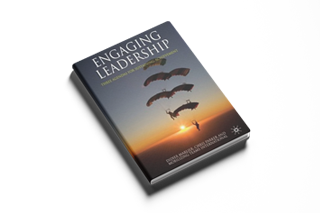I confess to be increasingly sceptical when hearing people talk about “New Normal”, a convenient way to go back, without too much questioning, to “Business as Usual” after a superficial facelift!
Working from home? New Normal! All digital? New Normal! Virtual meetings? New Normal! Increased control? New Normal! And the list could be long…
The problem I have with “New Normal” is that it focuses on the spectacular (mainly, technological) and fails to question the mindset, the purpose and the behaviours! The French language has an expression to qualify such vain efforts: “Placing a cast over a wooden leg!”
Already in a “Strategy & Business” article dated 1997, Strategy Guru Gary Hamel, invited wannabe disruptors to “systematically deconstruct the orthodoxies and dogmas that rule a business. When people sit down and think about strategy, too often they take 90 or 95% of industry orthodoxies as a given and as a constraint. Instead, they must stare down their orthodoxies and determine that they are not going to be bound by them anymore. In effect, in looking for new directions, they are simply not going to start with the same old starting point.”
Far more recently, on February 4th 2021, Jean-Michel Jacques, vice-president of the French National Defence and Armed Forces Commission, at the French National Assembly, declared: “Challenging the way we do things and get ownership of Unpredictability, means thinking out of the classical frame and free ourselves from the norms, from the established rules and from the principle of precaution which paralyse our society”.
If we aim at creating a truly New Economy, we’d better focus on changing mindsets rather than exclusively on technology. When Yves Morieux, “Mr. Complexity” at BCG displays, during a TED talk (already shown here 3 ½ years ago), how the individually weaker Woman French 4x100m relay beats its stronger US counterpart, he explains that the French athletes would never have had a chance to win by focusing and working hard on their running technique. Instead, they focused on the passing of the baton.
History has already shown that technology alone would not create the progress hoped for. When, during the 60’s, the US Navy, launched its first atomically propelled submarines, the joy was great at the top of the hierarchy. A nuclear submarine would be able to travel underneath the sea surface for months, without refuelling nor seeing the light of the day. Where do you think the danger came from? From the crew who were “blowing fuses” because of being confined into a tin box, with restricted comfort and always with the same people. This is how the famous psychometric of William Schutz (F.I.R.O.) was created: to help the top of the Navy understand what went wrong. Something similar was just recognized by the Chinese Navy (see CNN article of February 1st 2021).
So, if not just technology but, above all, mindset, what needs to change in the Post-Covid Economy so that we recreate something sustainable?
- Generosity, Concept of Abundance & Global thinking: Who doesn’t remember the pathetic scenes of people fighting for hygienic paper? In Switzerland, more recently, it was just enough that people heard there would be a shortage of vaccines to cut in half the number of sceptics… Endless the, the W.H.O. is calling for a far more equitable repartition of vaccines between richer and poorer countries. Do we seriously believe that such a selfish, heartless and divisive state of mind is still acceptable, leave aside sustainable? When the Covid crisis hit Brazil very hard, the leaders of ifood, went public and co-created, with other C.E.O.s “Não demite!” (don’t lay-off!), a movement where leaders and shareholders promised they would not fire people because of the crisis. But ifood went further: They also offered protection (without hiring them) to the bikers delivering their products. They also financed restaurants without whom, their business model would be one-legged. Now guess where ifood is against its competitors (Ubereats and others) in Brazil? No 1! Bikers and restaurants owners feeling grateful to them, you may imagine whose clients get the best service! Stopping to selfishly focus on our part of the World will be a must, if we are to keep our Economy running.
- Inclusion and the end of exclusion: “We must learn to live together as brothers or perish together as fools!” said Martin Luther King. This has never been truer than now that we hope to see a thin light at the end of the Covid tunnel. We are seeing the disaster of polarization, encouraged hatred and exclusion in a country many of us loved to love. Inclusion is not about accepting everything from everyone, it is about showing respect and understanding. Most of the books on conflict resolution teach it: 1. Seek to understand, from an intellectual and emotional standpoint why people hold the position they do. 2. Explain them, in full disclosure what you have a different point of view. 3. Seek to build a solution respecting every side’s needs.
- Relational, not just transactional: Organisations and civil societies who seem to fare best through the confinement are those which refuse to drift into an exclusively transactional mode. They consciously and through hard work sometimes, design and build “relational moments” in their day to day. A top performing German chemical group has decided to dedicated one of three days of its yearly “Virtual Convention” to a relational moment between its top leaders. Many other clients have set up reunions where people would not necessarily talk about business but about themselves. The Board of a multinational has its members calling people around the World at random, to engage into a personable dialogue with them…
I see it as our duty, as Business Leaders, to challenge the orthodoxies and ensure that the efforts our governments, shareholders, people, societies and we consent to, don’t bring us back towards the old ways of thinking that got us here!



0 Comments